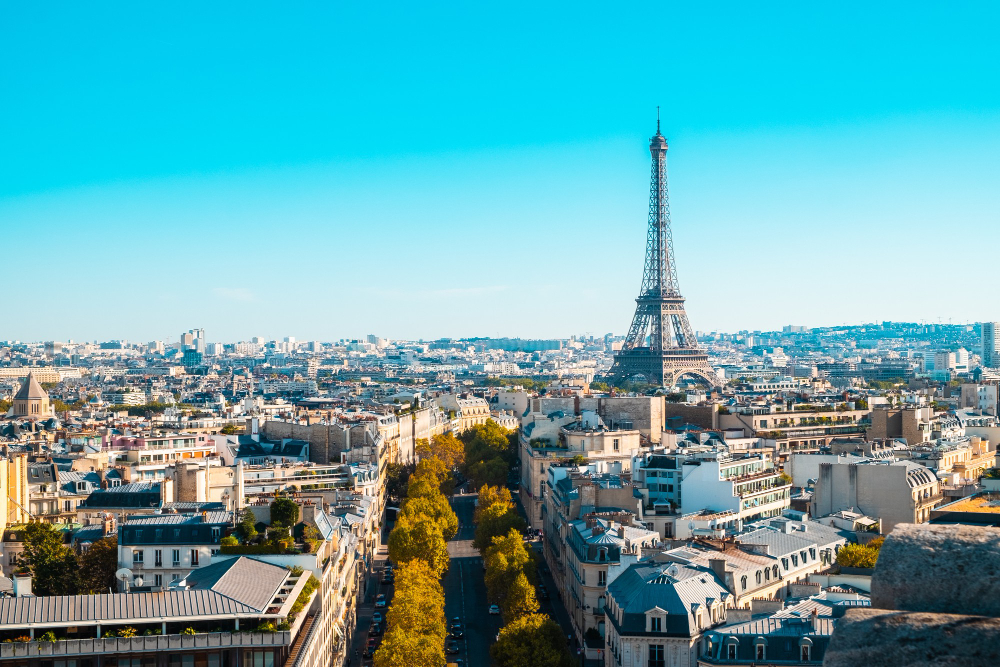
France is steadily gaining recognition as a top-tier destination for medical tourism, particularly for patients from Europe, North America, the Middle East, and Africa. Known for its high standards of healthcare, patient safety, and medical innovation, France combines cutting-edge medical services with an atmosphere of cultural sophistication and healing. With a long-standing reputation for excellence in both public and private healthcare, France offers everything from advanced surgeries to wellness-oriented treatments in picturesque settings. Cities like Paris, Lyon, Marseille, and Bordeaux host some of the most well-equipped hospitals and specialty clinics in Europe, making the country an attractive option for international patients seeking reliable and refined care.
France’s healthcare tradition is grounded in scientific rigor and humane patient-centered values. The country has long been a pioneer in cardiovascular surgery, cancer research, reconstructive procedures, and fertility treatments. This medical expertise is supported by a strong regulatory environment, ensuring that every patient receives safe, ethical, and effective care. Combined with France’s charm, culinary delights, and world-famous art and landscapes, the experience of healing here becomes both restorative and memorable.
France is globally recognized for excellence in oncology (especially breast, prostate, and colorectal cancers), cardiology, and orthopedic surgery. It is also at the forefront of plastic and reconstructive surgery, neurosurgery, ophthalmology (especially cataract and glaucoma treatments), and robotic-assisted minimally invasive surgeries. France is a popular choice for IVF and assisted reproductive techniques due to strict regulatory oversight and high success rates.
Dental tourism is also on the rise in France, particularly for cosmetic dentistry and full-mouth restoration procedures. Treatments are conducted in sterile, ultra-modern environments by multilingual teams. France’s reputation for dermatology, skincare, and aesthetic medicine adds to its appeal, drawing patients seeking anti-aging therapies and laser treatments.
Despite its advanced infrastructure, costs for private medical treatments in France are competitive compared to the U.S., U.K., and parts of Scandinavia. Many hospitals and clinics offer customized packages that may include consultations, hospital stays, and follow-up care.
France is one of the most accessible countries in the world, with international airports in Paris (Charles de Gaulle and Orly), Lyon, Nice, and Marseille offering direct flights from nearly every continent. The Schengen visa system makes travel planning easy for many nationalities, and patients from the EU benefit from reciprocal healthcare agreements.
French hospitals and clinics catering to international patients typically provide multilingual support staff, private rooms, and concierge services. While French is the national language, English is commonly spoken in private medical institutions and urban centers. Translation services are also widely available upon request.
Culturally, France is welcoming and accommodating. Medical facilities are sensitive to religious and dietary requirements, offering kosher, halal, and vegetarian meal options as well as gender-specific care when needed. The proximity to luxury spas, therapeutic retreats, and historic cities makes recuperation pleasant and stress-free.
France’s healthcare system is closely regulated by national agencies like the Haute Autorité de Santé (HAS), which ensures stringent quality control and medical ethics. Many hospitals hold certifications equivalent to international standards, and several are aligned with European Centers of Excellence.
Patient rights are well-protected under French law, including full disclosure, confidentiality, and informed consent. Clinical outcomes, hygiene protocols, and malpractice prevention measures are strictly monitored. Follow-up care is taken seriously, with options for in-person or teleconsultation-based aftercare. Many clinics also offer wellness programs, physiotherapy, and nutritional counseling as part of a holistic recovery plan.
France presents a compelling combination of medical precision, artistic elegance, and exceptional hospitality. With its sophisticated health system, compassionate care, and luxurious surroundings, it is an ideal destination for medical tourists seeking both superior treatment and an enriching travel experience. From life-enhancing procedures to preventive and aesthetic care, France delivers excellence with a touch of elegance.
1. Why choose France for medical tourism?
France offers high-quality healthcare, advanced treatments, and a beautiful setting for recovery.
2. Is medical care in France affordable?
Private healthcare in France is more affordable than in the U.S. or U.K., with transparent pricing.
3. What treatments are popular in France?
Cancer care, cardiac surgery, IVF, orthopedics, dental work, and cosmetic surgery are most common.
4. Are French doctors internationally trained?
Yes, many have trained or worked in top global institutions and speak English fluently.
5. Do hospitals in France cater to international patients?
Yes, many offer multilingual staff, concierge services, and private rooms.
6. How do I travel to France for treatment?
France has major international airports and easy visa processes for many countries.
7. Is English spoken in hospitals?
Yes, especially in private hospitals and urban centers. Interpreters are also available.
8. What cultural or religious accommodations are available?
Hospitals offer halal, kosher, vegetarian meals, and gender-specific care when needed.
9. Is the French healthcare system safe?
Yes, it is strictly regulated and known for high standards and patient protections.
10. What about follow-up care?
Hospitals offer detailed aftercare plans, remote consultations, and rehabilitation.
11. Can I combine treatment with a vacation?
Yes, many patients enjoy France’s spa resorts, nature, and cultural cities post-treatment.
12. What currency is used in France?
France uses the Euro (€).
13. What is the time zone in France?
France is in Central European Time (CET), UTC +1 or +2 in summer.